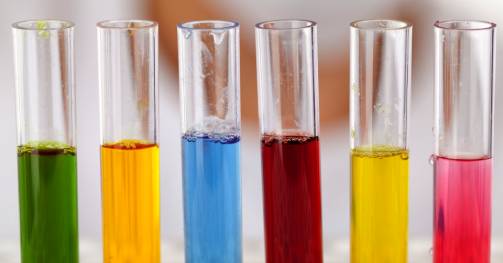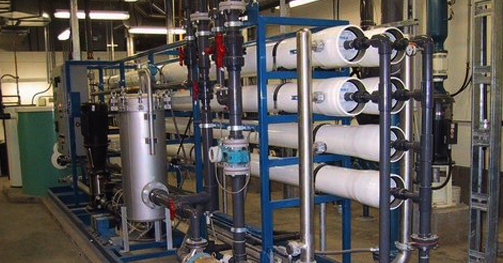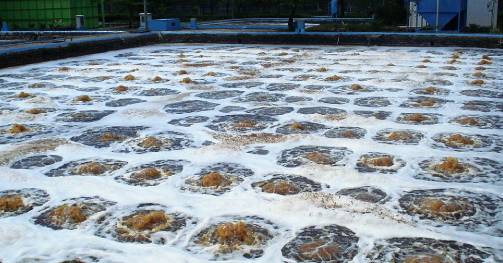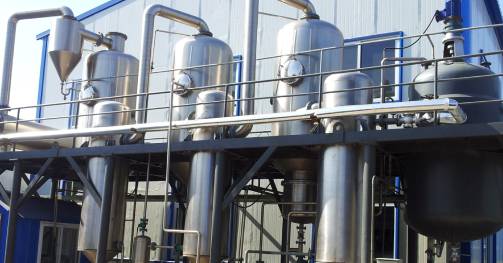Sustainable solutions for better future
Enquiries or Questions?
—–> Reach Us Now
Our Product Catalogue
—–> Click here to see the range
Get Quick Quote
Boiler Water Treatment Chemicals
Boiler water treatment is a type of industrial water treatment concentrating on removal or chemical modification of constituents potentially harmful to the boiler. Different types of treatment are practiced to control alkalinity, prevent scaling, correct pH, control conductivity in the boiler water.
| Product | Product Name | Description | Info |
|---|---|---|---|
| TC 1040 | Food Grade Chemical | Food Grade Chemical for Low and Medium Pressure Boiler. | Get Quote |
| TC 1276 | Phosphate Builder | Phosphate Builder for Boiler – Liquid | Get Quote |
| TC 1277 | Phosphate Builder | Phosphate Builder for High Pressure Boiler – Powder | Get Quote |
| TC 1302 | Oxygen Scavenger | Catalyzed Hydrazine Hydrate based Oxygen Scavenger for High Pressure Boiler | Get Quote |
| TC 1303 | Oxygen Scavenger | Catalysed Sulphite based Oxygen Scavenger for Low and Medium Pressure Boiler – Powder | Get Quote |
| TC 1304 | Oxygen Scavenger | Catalyzed Sulphite based Oxygen Scavenger for Low and Medium Pressure Boiler – Liquid | Get Quote |
| TC 1321 | Oxygen Scavenger | Catalyzed Carbo Hydrozide based Oxygen Scavenger for High Pressure Boiler | Get Quote |
| TC 1340 | Filming & Neutralizing Amine | Filming & Neutralizing Amine for High Pressure Boiler | Get Quote |
| TC 1341 | pH Booster | pH Booster for High Pressure Boiler | Get Quote |
| TC 1349 | Oxygen Scavenger | Di Ethyl Hydroxyl Amine based Oxygen Scavenger for High Pressure Boiler | Get Quote |
| TC 1403 | Multi – Purpose Treatment Chemical | Multi – Purpose Treatment Chemical for Low and Medium Pressure Boiler | Get Quote |
| TC 1421 | pH Booster | pH Booster for Low and Medium Pressure Boiler | Get Quote |
| TC 1448 | Multi – Purpose Treatment Chemical | Multi – Purpose Treatment Chemical for Low and Medium Pressure Boiler | Get Quote |
| TC 1502 | Sludge Conditioner | Sludge Conditioner for Low and Medium Pressure Boiler | Get Quote |
| TC 1505 | Multi – Purpose Treatment Chemical | Multi – Purpose Treatment Chemical for Low Pressure Boiler | Get Quote |
This technique of boiler water treatment is adopted to meet following basic objectives
- To prevent the scale formation due to traces of residual hardness from boiler feed water
- To overcome the pitting corrosion due to residual dissolved oxygen
- To prevent caustic embrittlement
- To prevent priming & foaming
- To clarify the boiler water for effective blow down
- To protect the pre boiler equipment and steam condensate from corrosion
- To maintain the steam purity with dry in condition & low in solids
Most recent boilers require cleaner heat – transfer surfaces and to achieve this objective to reduce the fuel costs and expensive downtime, employing appropriate water treatment is the only solution.
Effective water treatment plays vital role in helping to maintain operating efficiency and steam quality and minimize costs. On the other hand, if the feed water is improperly treated where the impurities are allowed to reach excessive concentrations, steam quality would be poor, leading to serious consequences of tube failure.
Important of Boiler water treatment
- Boiler feed water contains dissolved solids, which will get deposited as scales on the heat transfer surfaces during evaporation. As scales have much lower heat transfer capacity than steel, this leads to overheating and failure of the boiler tubes.
- Dissolved oxygen/CO2/low pH in the boiler water causes pitting corrosion or lowering the thickness of the steel tubes, leading to failure of the boiler tubes.
- Silica volatilizes at higher operating pressures and carries over to the turbine blades.
- The Impurities carried over in the steam, causing deposits on turbine blades leading to reduced turbine efficiency, high vibrations, and blade failure. These contaminants can also cause erosion of turbine blades.
The treatment of boiler feed water may be divided into two broad classifications, viz external & internal treatment. In the first, scale forming and corrosive substances are removed from the water before it enters into the boiler.
In the second, suitable treatment chemicals are added into the boiler to react with residual hardness, to remove residual gases, to neutralize or overcome corrosive tendencies and to reduce the sticking tendency of scale forming materials.
External treatment is the reduction or removal of impurities from water outside the boiler and its purpose is to properly react with feed water hardness, condition sludge, scavenge oxygen and prevent boiler water foaming. There are many types of external treatment like coagulation, filtration, softening, demineralization, reverse osmosis, evaporation, deaeration, condensate treatment etc which can be used to tailor make feed-water for a particular system.
Even after practicing through the best possible external treatment, boiler feed water still needs to be treated inside the boiler system. Internal treatment is the conditioning of impurities within the boiler system.
Boiler Water Treatment Programme
- Chemical additives and boiler blowdown are used to control the boiler water chemistry. Trained water treatment expert should select proper chemical additives based on steam system design, concentration and type of impurities present in the water and the end use of the steam.
- Chemical additives report a variety of issues including residual impurities, residual oxygen levels and the pH level in the water. Phosphate compounds are common additives for boiler water treatment and it reacts with any remaining hard water impurities to create a soft sludge that is eliminated by blowdown.
- Mechanical deaerator to be kept in operation always for effective removal of dissolved oxygen from feed water.
- Even most efficient deaerator cannot remove the last traces of dissolved oxygen even at high temperature and some residual oxygen will present after water has bees deaerated. Though such amount of oxygen is traces and negligible, they are dangerous as they cause severe corrosion. The final traces of oxygen are removed by addition proper oxygen scavengers.
- The required pH in the feed water, boiler water, steam quality & condensate water to be maintained since water pH is an important factor in helping to control scale build up and avoiding corrosion.
- Required alkalinity is necessity to be maintained in the boiler water in order convert the magnesium into magnesium hydroxide sludge which is removed by blowdown. Also maintaining required alkalinity in the boiler water will help to maintaining coating of iron oxide over boiler metal and keeps silica in solution.
- Filming amines and volatile oxygen scavengers are used to form a protective film and metal passivation.
- Carryover can be controlled through careful boiler operation and maintaining of proper steam drum water level and use of proper sludge conditioner and antifoamer will greatly help in reducing carryover.
- Continuous blowdown from the steam drum is preferable to control the TDS in boiler water and intermittent blow down from the bud drum will help in removing the sludge accumulated.
Boiler water treatment is important to both efficiency and the durability of your boiler. Kimberlite water plus provide boiler water treatment programme to prevent scaling, corrosion, deposition and carry over in the boiler system.
Tacelene Chem® range of boiler water treatment chemicals are formulation of polymers and organo-inorganic chemical treatment programmes.
Products
- Multipurpose treatment chemicals
- Sludge Conditioners
- Catalyzed Oxygen Scavengers
- Filming & Neutralizing Amines
- Condensate treatment programme
- Alkalinity Builders
- Anti-Priming & Foaming Compounds
- Descaling Compounds
Benefits
- Extend equipment life by preventing pitting corrosion and passivating metal.
- Affords excellent corrosion protection.
- Prevents deposition of hardness salts.
- Ensures high mobility of phosphate sludge.
- Good dispersion of suspended particulate matter.
- Rapid reaction rate with oxygen
- Powerful threshold inhibitor to prevent scale formation
- Alkalinity control is a vital part of any internal boiler water treatment.






